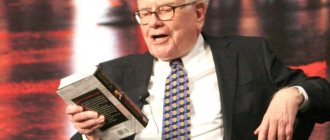Remember how often we say “ideal living conditions”, “ideal working conditions”, “this is my ideal man/woman”, “this is an ideal relationship”, etc. Now remember the situations when ideas about ideals diverge. To the point that someone considers terrible what is ideal and most beautiful for another. Why is this happening? Why do ideas about the ideal differ, and what influences the formation of ideas? This is what we have to talk about today.
What is an ideal
An ideal is the best example of something or the highest goal in some activity. This is the ultimate dream of a person, what a person strives for. But the idea of the ideal is always subjective.
For example, in the opinion of one woman, the ideal figure is maximum muscle and minimum fat. And another woman is drawn to curvaceous figures. The third representative of the fair sex dreams of a flat figure. And such a divergence of ideals is observed in everything: appearance, leisure, social circle, place and working conditions, marital status, character, etc.
An ideal or system of ideals differs not only from person to person, but also changes within the individual himself. This is a dynamic structure that depends on age, developmental situation, environment, level of intelligence, and a person’s outlook. Our ideals change throughout our lives.
Modern times
Subsequently, ideals continued to change. Both blondes and brunettes were in fashion. Hair had to be either long or cut short, breasts - sometimes small, sometimes lush.
Recently, quite thin girls with long legs, a flat stomach and a thin waist are considered beautiful. Large eyes are valued, and a miniature nose.
The most interesting thing is that the fashion for a slim physique has developed due to ordinary mannequins in stores. Sellers skimped on material, creating thin dolls, but the things sat on them so beautifully that women wanted to have a similar figure.
How an ideal is formed
The formation of ideals occurs in the process of socialization. The basis of ideals:
- needs, interests and motives of the individual;
- values and beliefs of the individual;
- values and ideals of society.
Society and its assessment and opinion have a great influence on the formation of ideals. For example, in different eras in society there were different ideas about the ideal family. Patriarchy reigned for a long time. The woman played exclusively the role of homemaker. She obeyed her husband in everything and did not dare contradict him. What are we seeing today? The idea of gender equality and the distribution of family responsibilities is supported. And some even believe that the ideal of a family is a working woman and a man who is a housewife.
Another example. Once upon a time, society was ruled by the spirit of collectivism, but now society promotes the idea of individualism. The ideal of a citizen is an independent, constantly developing and creatively self-realizing personality.
As a person grows up, he orients himself towards different representatives of society. At an early age - parents, older brothers and sisters. During school years, he was a teacher. In adolescence - peers. In youth and adulthood - other adults. The ideal can be a book hero or a historical figure.
It is worth noting that socially significant ideals do not always become personally significant beliefs and aspirations. The transition of social ideals into intrapersonal role models does not always occur. The formation of ideals is influenced by a person’s worldview and the mentality of society. An ideal only becomes a product of the inner world when a person fully realizes that he must follow this ideal and fulfill the duties associated with it. If a person takes something for granted, and does not just know that it is necessary to do so, then this something becomes his aspiration. Thus, it is important to feel and experience for yourself, and not just know, have an idea about something.
Concept and types of values
Note 1
Values represent a wide class of mental objects - beliefs, stereotypes, rules, ideals, concepts that have a high level of significance for the individual, influence the processes of planning and carrying out activities, as well as the choice of goals and direction of its actions.
Each person has many values, which are organized into a value hierarchy. Values are not equal. In the practical activities of an individual, situations may repeatedly occur when different values come into conflict with each other, and the individual has to make a choice in favor of one of them.
The following types of values can be distinguished:
- material – values of the property-physiological spectrum;
- spiritual – values associated with abstract, intangible categories of personality development and its spiritual life;
- moral – values of ethical interaction;
- aesthetic – values of the idea of beauty and ugliness;
- social – values associated with interpersonal interaction and attitude towards society.
What role does ideal play in a person’s life?
The idea of an ideal and the craving for it contribute to the development of personality. In pursuit of results, a person improves himself and engages in self-education. The ideal determines the norms of behavior and sets the direction of activity, influences the orientation of the individual. The ideal determines the purpose and meaning of a person’s life and influences behavior and thinking.
Sometimes the attitude towards the ideal is contemplative and enthusiastic. But this is more like worshiping an idol, and we will talk about this another time. In the meantime, let's continue talking about the ideal.
The ideal image is an improved reality. Let us consider this in more detail using the example of the ideal of personality. The ideal is endowed with those qualities that a person lacks. He can do things that people in the present cannot do. But, importantly, a person can acquire all this if he wants. This is how the ideal self differs from the fantastic self. However, sometimes these elements become confused within the individual, and the person makes unrealistic demands on himself. He, of course, cannot achieve them, which causes him to experience deep frustration, irritation, and disappointment. Against this background, depression, neurosis or another mental disorder may develop. I propose to take a closer look at the situation in which a person confuses the ideal self and the fantastic self, dooming himself to failure and suffering.
Interpretation of the term
After doing a little research, we could not find a consensus on the question “what are ideals?” The definition can be completely different and ambiguous.
The problem is that for each individual who lives in a certain society, the interpretation of the term “ideal” is unique. A person follows his ideas, which are embedded in his subconscious. For some, these are ideals of external beauty, and for others, these are spiritual ideals. But you cannot treat them as a static phenomenon. For example, in childhood there may be ideals of a prince or princess. They will have certain character traits and appearance.
As the child grows older, these ideals begin to change. This needs to be taken quite seriously. Many children take for ideals images that are not ideal at all. The ideals that teenagers set for themselves are especially serious. For example, who breaks the law. Following one's ideal can lead a child to repeat the fate of his idol.
Sometimes a successful person is chosen as an ideal. By following his advice, you can achieve success in business yourself. The older generation also considers veterans, heroes who saved their homeland and thousands of lives, to be ideal. But each person perceives ideals in his own way. Because everyone has their own value system.
Perfectionism as a striving for ideal
Perfectionism is a constant striving for ideal. A perfectionist is always dissatisfied with himself and tries to improve himself, the world, and his activities. He gets hung up on the little things and, as a result, does not notice or does not have time to grasp the main thing. A perfectionist is dissatisfied with himself, even when he achieves success. He always thinks that he could do better, faster, etc. In pursuit of the ideal, a perfectionist forgets about basic needs, and he can even destroy the fruit of his labors.
Perfectionism can be a character trait, or it can take pathological forms and develop into obsessive-compulsive disorders. However, the prerequisites for perfectionism are always the same:
- low self-esteem;
- desire to receive recognition and praise;
- inferiority complex;
- diffidence;
- need for love and attention;
- fear of criticism, dependence on other people's opinions.
Fear of failure sometimes fetters the hands of a perfectionist. Then he prefers to do nothing, not try new things, and not take on extra responsibility.
The reason for the development of perfectionism is high expectations on the part of parents. Blame, prohibitions, emotional coldness, demandingness and other elements of authoritarian upbringing lead to this. As we have already said, children follow the ideals of their parents. A perfectionist is taught from childhood to strive for an unrealistic ideal.
Parents, as a rule, do not know or deliberately ignore the child’s characteristics. Instead, they try to make him a role model (in their minds), an object of pride. Or they strive to realize their unfulfilled dreams in it. And for a child’s development there is nothing worse than going against one’s essence. That is, to do something for which you have no inclinations or inclinations. Or live according to a routine that contradicts the properties of the psyche and temperament. The child grows up, but excessive demands on himself and others remain, as does the accompanying feeling of personal failure.
Perhaps you didn't know:
Antinomy is a term in Kantian philosophy that denotes the state of duality of pure reason, as well as the contradiction of its laws and equally provable provisions.
“The thing-in-itself” is one of the central concepts of epistemology, and then of Kant’s ethics. This concept denotes things as they exist outside of us, by themselves (in themselves), as opposed to how they are “for us.”
The Absolute Spirit is in Hegel’s philosophical system the final link in the development of the spirit, realizing the self-consciousness of the absolute idea. Having passed through the stages of subjective spirit and objective spirit, the spirit ascends to absolute knowledge.










